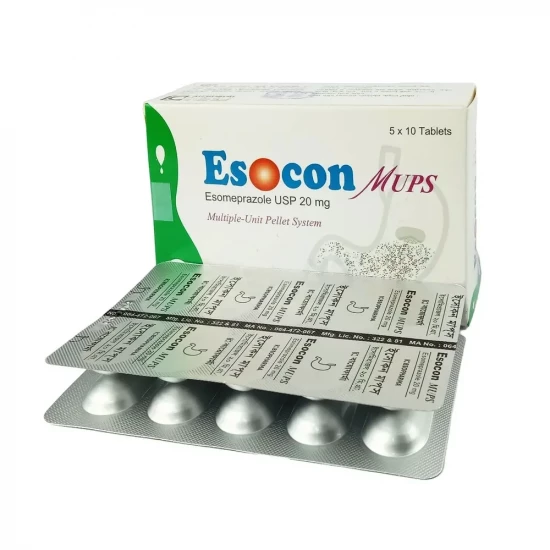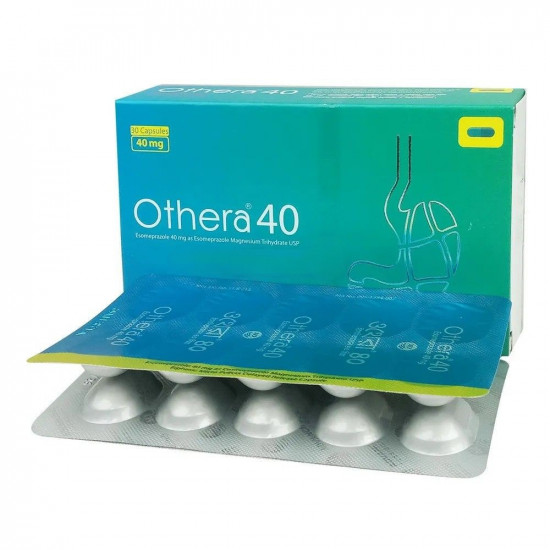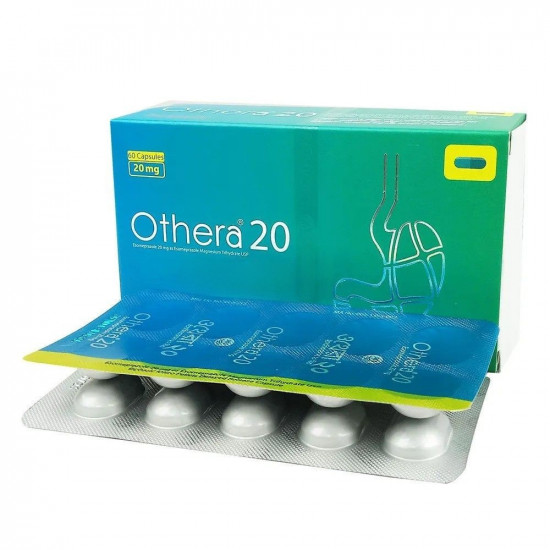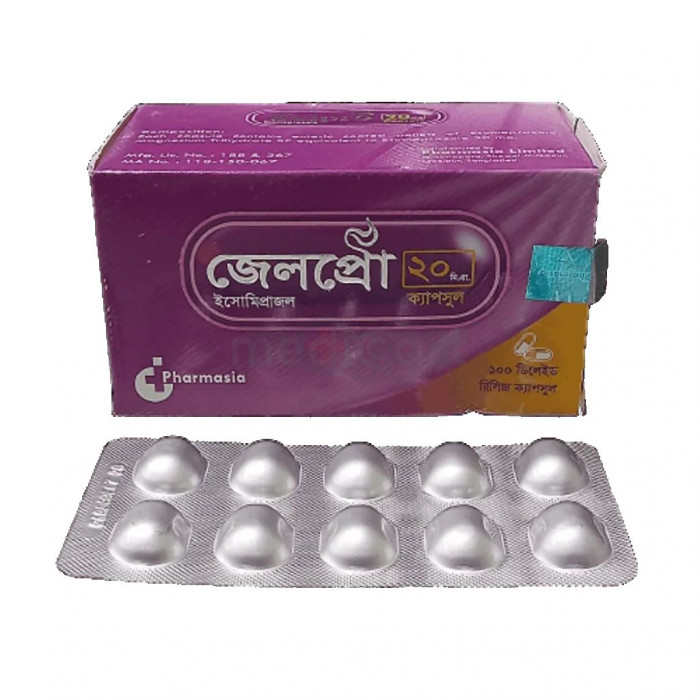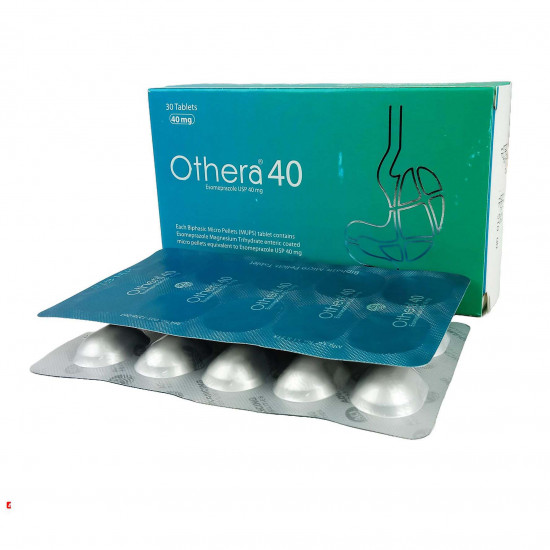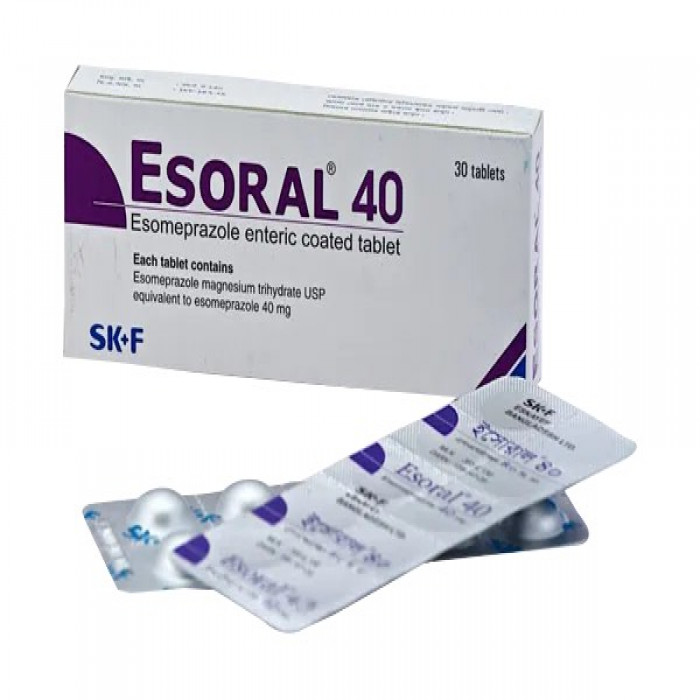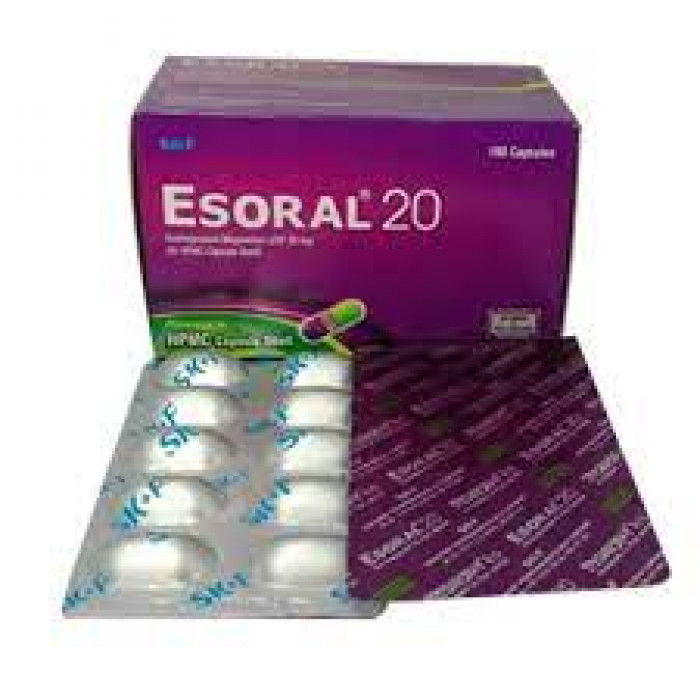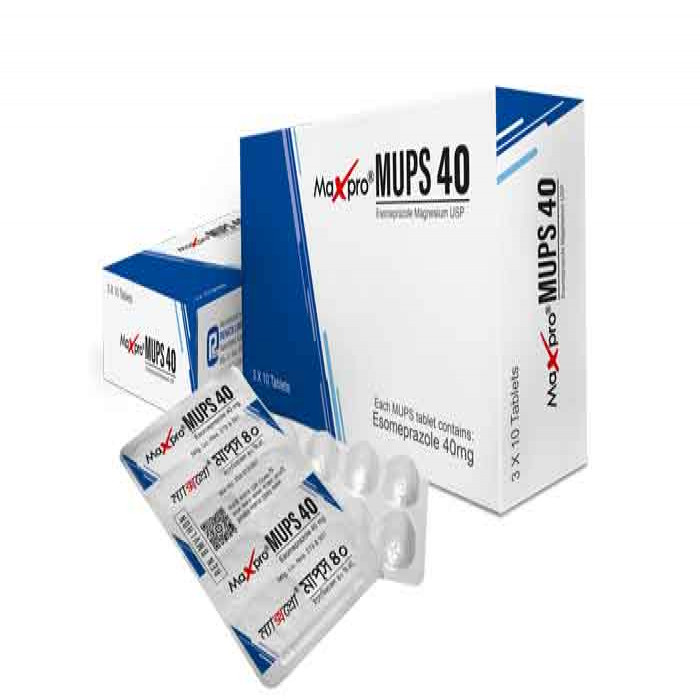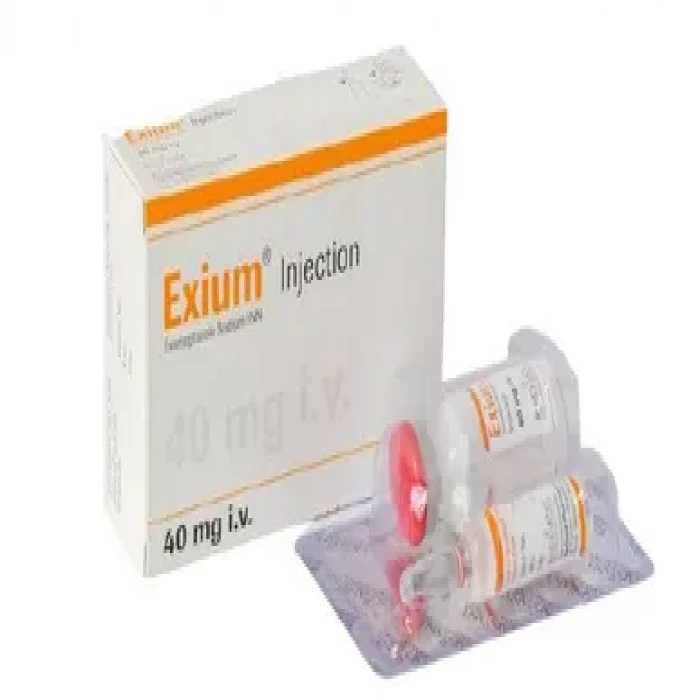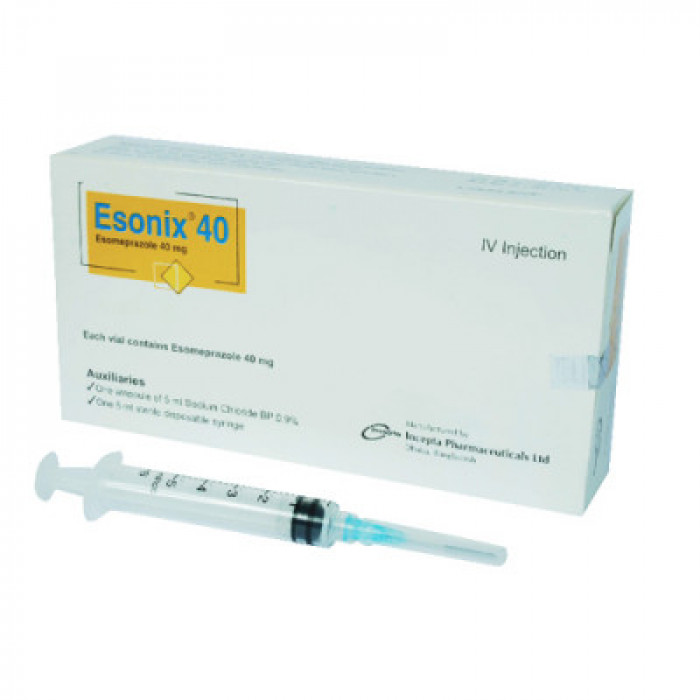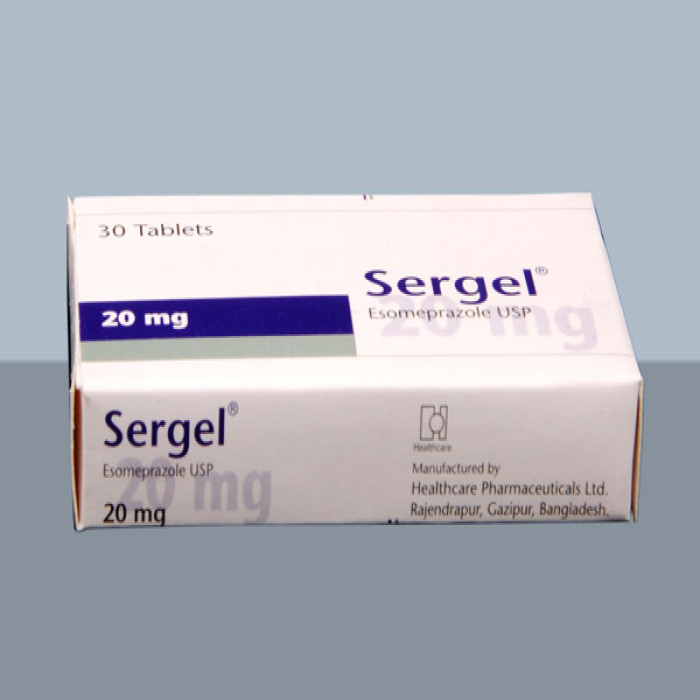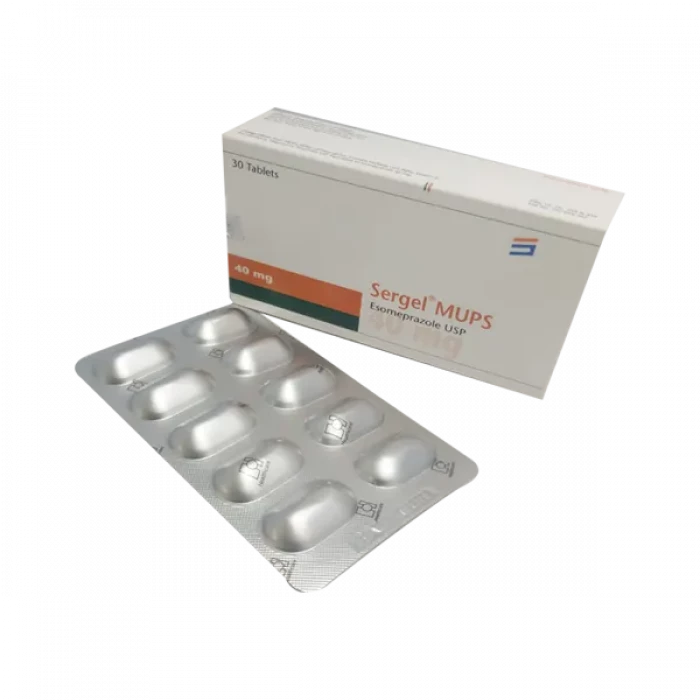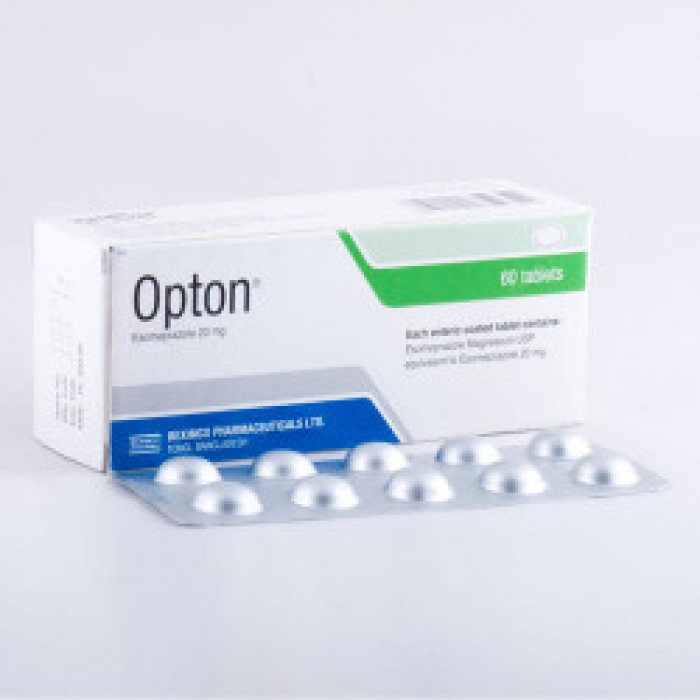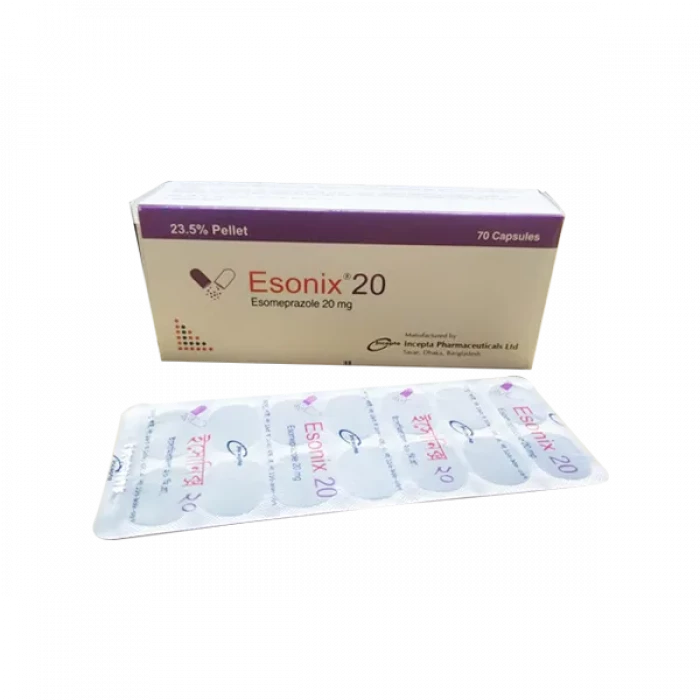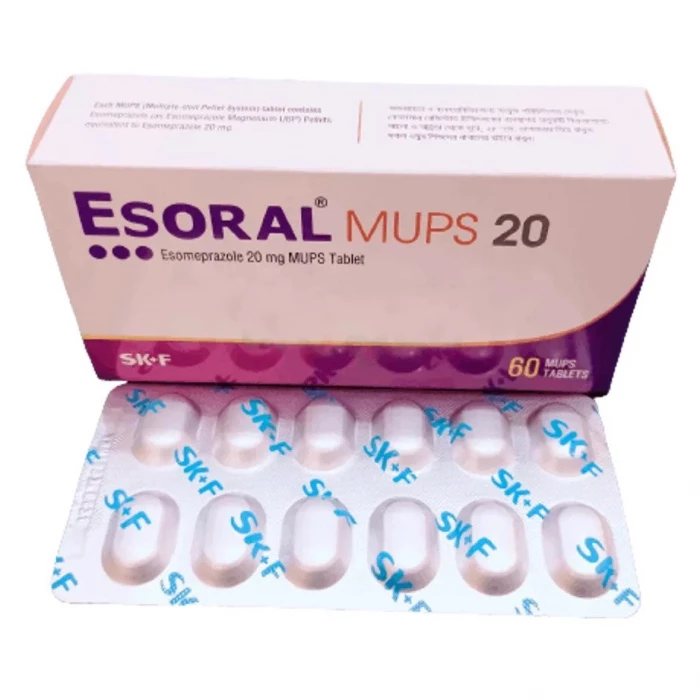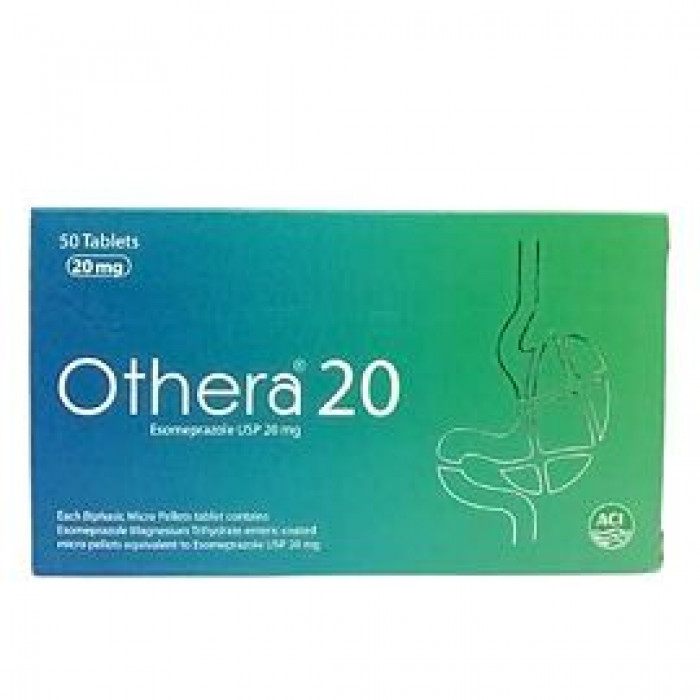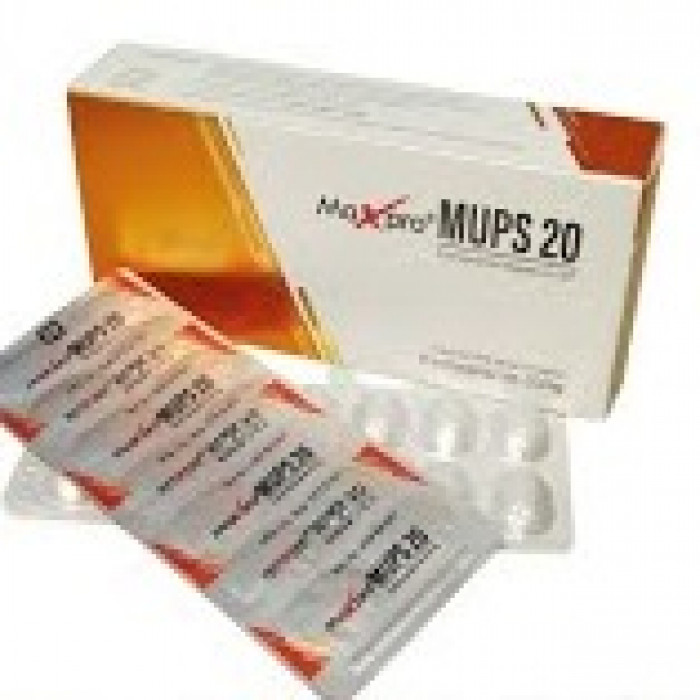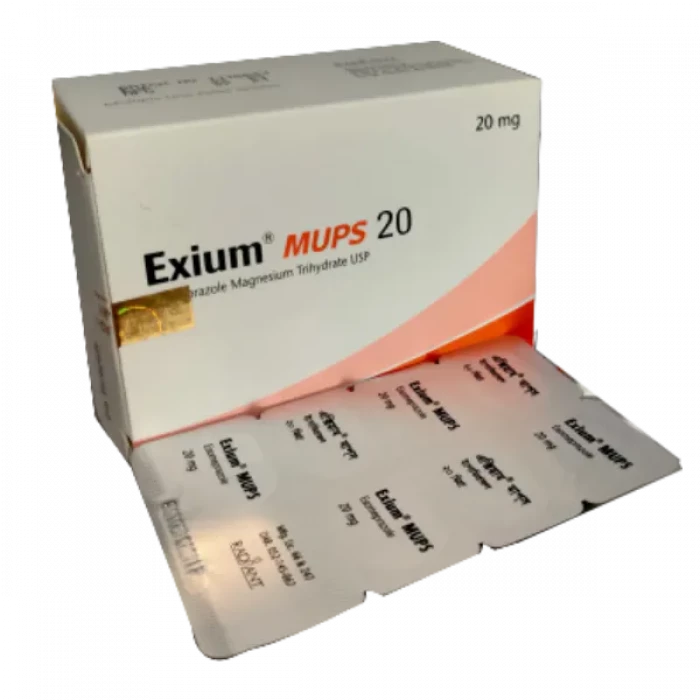
✔ 100% Authentic Product
👁️ Currently Viewing 12373
Exium Mups 20mg Tablet
The proton pump inhibitor medication class, which includes Esomeprazole, lowers the quantity of stomach acid produced. It treats Zollinger-Ellison syndrome, stomach ulcers, and gastroesophageal reflux disease (GERD). (overproduction of acid due to pancreatic tumor).
Discount
Price: ৳ 107
MRP:
৳
110
3%
Off

100% Genuine Products, Guaranteed

Safe & Secure Payments, Always

Fast, Secure & Efficient Delivery

Proper Packaging
 Cash on Delivery - All over Bangladesh
Cash on Delivery - All over Bangladesh Regular Delivery - 12-24 Hours, Dhaka City* Charge Tk.39-59
Regular Delivery - 12-24 Hours, Dhaka City* Charge Tk.39-59 Regular Delivery - 24-48 Hours, Other Cities* Charge Tk.99-110
Regular Delivery - 24-48 Hours, Other Cities* Charge Tk.99-110
 ফ্রি ডেলিভারিঃ - ৯৯৯ টাকা+ অর্ডারে, ঢাকা
শহরে
ফ্রি ডেলিভারিঃ - ৯৯৯ টাকা+ অর্ডারে, ঢাকা
শহরে ফ্রি ডেলিভারিঃ - ২৯৯৯ টাকা+ অর্ডারে, ঢাকার
বাহিরে
ফ্রি ডেলিভারিঃ - ২৯৯৯ টাকা+ অর্ডারে, ঢাকার
বাহিরে
100% Genuine Products, Guaranteed
Safe & Secure Payments, Always
Fast, Secure & Efficient Delivery
Proper Packaging
 Cash on Delivery - All over Bangladesh
Cash on Delivery - All over Bangladesh Regular Delivery - 12-24 Hours, Dhaka City* Charge Tk.39-59
Regular Delivery - 12-24 Hours, Dhaka City* Charge Tk.39-59 Regular Delivery - 24-48 Hours, Other Cities* Charge Tk.99-110
Regular Delivery - 24-48 Hours, Other Cities* Charge Tk.99-110 ফ্রি ডেলিভারিঃ - ৯৯৯ টাকা+ অর্ডারে, ঢাকা
শহরে
ফ্রি ডেলিভারিঃ - ৯৯৯ টাকা+ অর্ডারে, ঢাকা
শহরে ফ্রি ডেলিভারিঃ - ২৯৯৯ টাকা+ অর্ডারে, ঢাকার
বাহিরে
ফ্রি ডেলিভারিঃ - ২৯৯৯ টাকা+ অর্ডারে, ঢাকার
বাহিরে
✅ Description:
- Exium Mups 20 is a medication that reduces the amount of acid the stomach produces.
- It is used to treat heartburn, acid reflux, and problems with the food pipe.
- The medication can also prevent and treat stomach ulcers.
- Exium Mups 20 belongs to a class of drugs known as proton pump inhibitors (PPIs).
- It works by inhibiting the activity of the proton pumps in the stomach, which are responsible for producing acid.
- Exium Mups 20 is available in tablet form and is usually taken daily before a meal.
- The dosage and duration of treatment may vary depending on the condition and the individual's response to the medication.
- Possible side effects of Exium Mups 20 include headache, nausea, diarrhea, and abdominal pain.
- It may also increase the risk of bone fractures and certain infections, particularly in long-term use.
Safety Advices

Alcohol
CAUTION
Caution is advised when consuming alcohol with Exium Mups 20. Please consult your doctor.

Pregnancy
CONSULT YOUR DOCTOR
Exium Mups 20 may be unsafe to use during pregnancy. Although there are limited studies on humans, animal studies have shown harmful effects on the developing baby. Your doctor will weigh the benefits and any potential risks before prescribing them to you. Please consult your doctor.

Breastfeeding
CONSULT YOUR DOCTOR
Exium Mups 20 is probably unsafe to use during breastfeeding. Limited human data suggests that the drug may pass into the breastmilk and harm the baby.

Driving
CAUTION
It is not known whether Exium Mups 20 alters the ability to drive. Do not drive if you experience any symptoms that affect your ability to concentrate and react.

Kidney
CAUTION
Exium Mups 20 is safe to use in patients with kidney disease. No dose adjustment of Exium Mups 20 is recommended. However, inform your doctor if you have any kidney disease.

Liver
SAFE IF PRESCRIBED
Exium Mups 20 should be used with caution in patients with severe liver disease. A dose adjustment may be needed. Please consult your doctor.
✔️ Uses of Exium Mups 20
- Gastroesophageal Reflux Disease (Acid reflux)
- Peptic Ulcer Disease
- Hyperacidity
- Heartburn
- Stomach Ulcer
✔️ How to use Exium Mups 20
Take this medicine in the dose and duration as advised by your doctor. Swallow it as a whole. Do not chew, crush or break it. It is to be taken empty stomach.
✔️ How Exium Mups 20 works
Exium Mups 20 is a proton pump inhibitor (PPI). It works by reducing the amount of acid in the stomach which helps in the relief of acid-related indigestion and heartburn.
✔️ What if you forget to take Exium Mups 20?
- If you miss a dose of Exium Mups 20, take it as soon as possible.
- However, if it is almost time for your next dose, skip the missed dose and go back to your regular schedule.
- Do not double the dose.
✔️ Quick Suggestions:
- Exium Mups 20 is a medication that is well-tolerated and lasts a very long period.
- Avoid eating just before going to bed or in the evening.
- If you get a fever, watery diarrhea, or persistent stomach pain, call your doctor right immediately.
- Esomeprazole usage for an extended period of time may result in weak bones and a mineral deficit, especially magnesium. As directed by your doctor, get enough calcium and magnesium in your diet or as supplements.
- If you experience reduced urine, edema (swelling brought on by fluid retention), lower back discomfort, nausea, exhaustion, rash, or fever, call your doctor immediately once. These could be kidney-related symptoms.
✔️ Side Effects of Exium Mups 20
- Headache
- Dryness in mouth
- Nausea
- Constipation
- Flatulence
- Diarrhea
- Abdominal pain
- Vomiting
- Flatulence
- Dizziness
- Arthralgia (joint pain)
✔️ Indication
• Gastroesophageal Reflux Disease (GERD)
• Risk reduction in NSAID-associated gastric ulcer
• H. pylori Eradication
• Zollinger-Ellison syndrome and idiopathic hypersecretion
✔️ Pharmacology
Esomeprazole may be a proton pump inhibitor that prevents the production of gastric acid by specifically impairing the H+/K+ ATPase found in the gastric parietal cell. By inhibiting the actions of an enzyme (H+/K+ ATPase or gastric proton pump), Exium Mups 20 aid in lowering stomach acid. This proton pump, which is located in the stomach wall cells, is in charge of releasing gastric acid secretion, which damages the duodenum, stomach, and food pipe tissues. Exium Mups 20 reduce the symptoms of gastroesophageal reflux disease (GERD), often known as heartburn, and esophagitis, an inflammation of the lining of the food pipe. The principal single optical isomer of proton pump inhibitors, esomeprazole (S-isomer of omeprazole), provides better corrosive control than racemic proton pump inhibitors.
✔️ Dosage of Exium Mups 20
Children aged 1 to 11:
- The disease of Gastroesophageal Reflux (GERD)
Erosion of the Esophagus:
- Weight under 20 kg: 10 mg once per day for eight weeks.
- Weight under 20 kilograms: 10 or 20 mg once daily for eight weeks.
10 mg once daily for the maintenance of Erosive Esophagitis Healing
- Children younger than one-year-old
- Children under 1 year old are not permitted to take esomeprazole Mups tablets.
✔️ Administration of Exium Mups 20
- Exium Mups tablets are to be ingested whole along with some fluids. Both chewing and crushing the tablets are not advised.
- Exium Mups tablet can also be dissolved, if necessary, in half a glass of non-carbonated water (mineral water is not suitable).
- Use of any other liquids is prohibited.
- Drink the liquid containing the pellets right away or within 30 minutes after stirring until the tablets have broken down.
- Drink after rinsing the glass with a half-glass of water.
- Exium Mups Tablet is forbidden to eat or crush the pellets.
✔️ Interaction
CYP2C19 and CYP3A4 substantially metabolize Exium Mups 20 in the liver. Esomeprazole is not expected to inhibit CYPs 1A2, 2A6, 2C9, 2D6, 2E1, and 3A4, according to in vitro and in vivo research. There shouldn't be any clinically significant interactions with medications that these CYP enzymes process. According to studies on drug interactions, esomeprazole does not interact clinically with phenytoin, warfarin, quinidine, clarithromycin, or amoxicillin. The main enzyme that metabolizes esomeprazole, CYP2C19, may be affected by esomeprazole. Diazepam's clearance was reduced by 45% when Esomeprazole 30 mg and diazepam, a CYP2C19 substrate, were taken together. Diazepam plasma levels have been seen to rise 12 hours after dosage and beyond. Esomeprazole reduces the production of stomach acid. As a result, esomeprazole may prevent the absorption of medications whose bioavailability is significantly influenced by gastrointestinal pH. (e.g., ketoconazole, iron salts, and digoxin)
✔️ Contraindication
Patients who have a history of recognized hypersensitivity to any formulation ingredient or to substituted Benzimidazoles should not take esomeprazole.
✔️ Pregnancy and Lactation
Pregnancy The S-isomer of omeprazole, esomeprazole, has not been adequately studied in pregnant women, and the available epidemiologic data do not support a link between first-trimester omeprazole use and an increased risk of significant congenital abnormalities or other negative pregnancy outcomes. The dosage-dependent embryo-lethality observed in reproduction tests in rats and rabbits occurred at omeprazole doses that ranged from 3.4 to 34 times the 40 mg oral human dose (based on a body surface area for a 60 kg person) There are no clinical studies on the effects of esomeprazole on breastfed infants or milk supply. Esomeprazole is the S-isomer of omeprazole, and limited evidence indicates that omeprazole may be found in human milk.
Along with the mother's clinical requirement for therapy and any potential negative effects on the breastfed child from treatment or from an underlying maternal ailment, the developmental and health benefits of nursing should be taken into consideration.
✔️ Precautions & Warnings
- Exium Mups 20 should be used carefully if the patient has severe liver dysfunction and severe renal impairment.
- Taking a proton pump inhibitor like Esomeprazole may slightly increase the risk of hip, wrist, and spine fracture, particularly when it is taken over a period of more than one year.
- Avoid regular sitting continuously, as it can increase stomach acid production.
- Try to take a break of 5 minutes in 1 hour by brisk walking or stretching.
✔️ Storage Conditions
Store in a cool & dry place below 25º C, and protect from light.
⚠️Disclaimer:
At ePharma, we’re committed to providing accurate and accessible health information. However, all content is intended for informational purposes only and should not replace medical advice from a qualified physician. Please consult your healthcare provider for personalized guidance. We aim to support, not substitute, the doctor-patient relationship.




